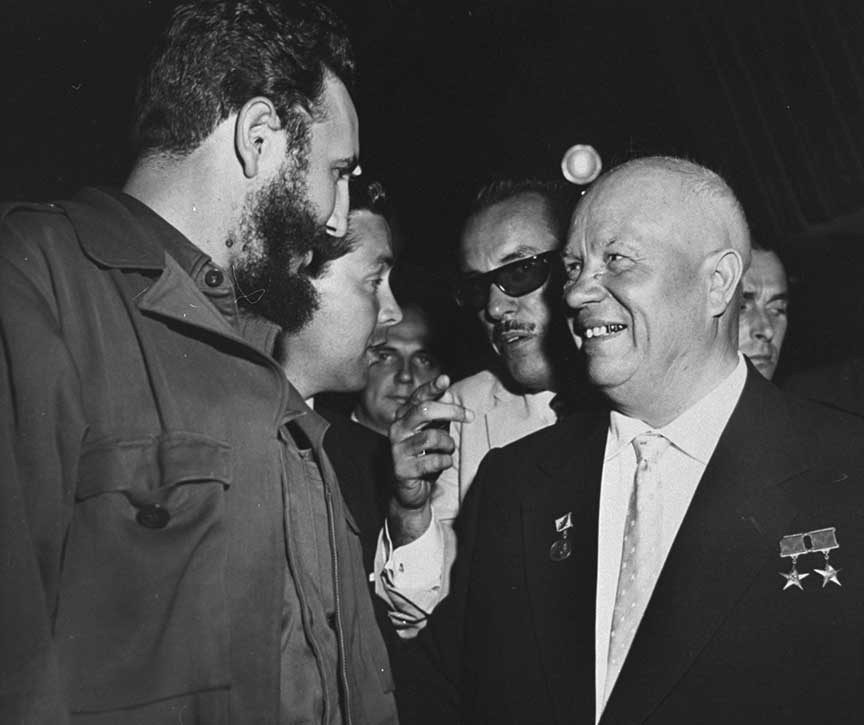
Castro and Khrushchev
President Kennedy inherited the CIA plan to send Cuban exiles to liberate the country. The CIA and the military convinced Kennedy that a plan to send a few thousand troops could succeed against a vastly superior force at Castro's disposal. The CIA and the military were counting on the President to approve direct US support once the invasion was under way. Kennedy, on the other hand, continually tried to limit US involvement. The result was the annihilation of the invasion force..
The Bay of Pigs invasion, which took place in April 1961, was a significant event in Cuban history, marking a decisive moment in the Cold War and the consolidation of Fidel Castro's power. From the Cuban perspective, this invasion was seen as a blatant act of aggression by the United States, aiming to overthrow the revolutionary government that had come to power just two years earlier. The Cuban government and its supporters viewed the incursion as a continuation of the imperialist policies that had plagued Cuba for decades, reinforcing their resolve to defend their sovereignty and independence.
The invasion began when a brigade of Cuban exiles, trained and funded by the CIA, landed at the Bay of Pigs on the southern coast of Cuba. The plan, orchestrated by the United States, was to spark a popular uprising against Castro's government. However, the invasion force encountered numerous problems from the outset. Poor planning, inadequate intelligence, and a swift response from the Cuban military led to the operation's failure. For many Cubans, the quick defeat of the invaders was a source of national pride and a validation of the revolution's strength and legitimacy.
Castro's forces, including the militia and regular army units, mobilized quickly to counter the invasion. The Cuban leadership effectively used the attack to galvanize support and unify the population against what they portrayed as a foreign attempt to recolonize the nation. The failed invasion also allowed Castro to consolidate his power further by purging the island of suspected counter-revolutionaries and tightening his control over all aspects of Cuban life. The Bay of Pigs invasion, therefore, not only solidified Castro's rule but also deepened the Cuban people's commitment to the revolutionary cause and their opposition to U.S. intervention.
In the aftermath of the invasion, the Cuban government strengthened its ties with the Soviet Union, seeking greater support to deter future U.S. aggression. The invasion had a lasting impact on Cuban foreign policy, pushing the island firmly into the Soviet camp and setting the stage for the Cuban Missile Crisis in 1962. For ordinary Cubans, the Bay of Pigs was a clear demonstration of the lengths to which the United States would go to undermine their sovereignty. It reinforced a narrative of resistance and resilience that has remained a core element of Cuban national identity ever since. The event is commemorated in Cuba as a victory over imperialism and a testament to the revolutionary spirit that continues to shape the nation's politics and society.
 >
>